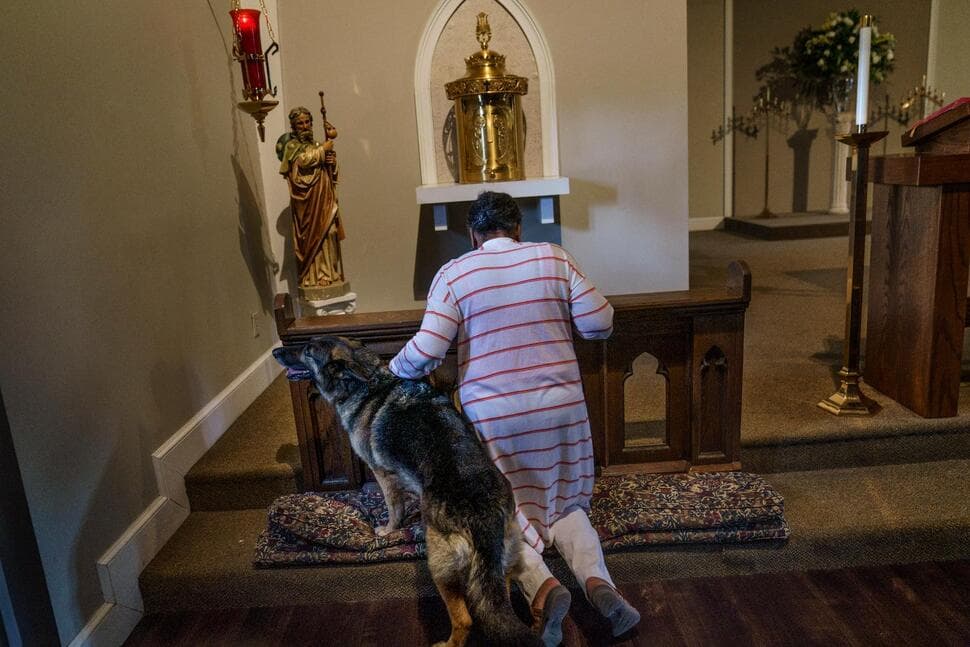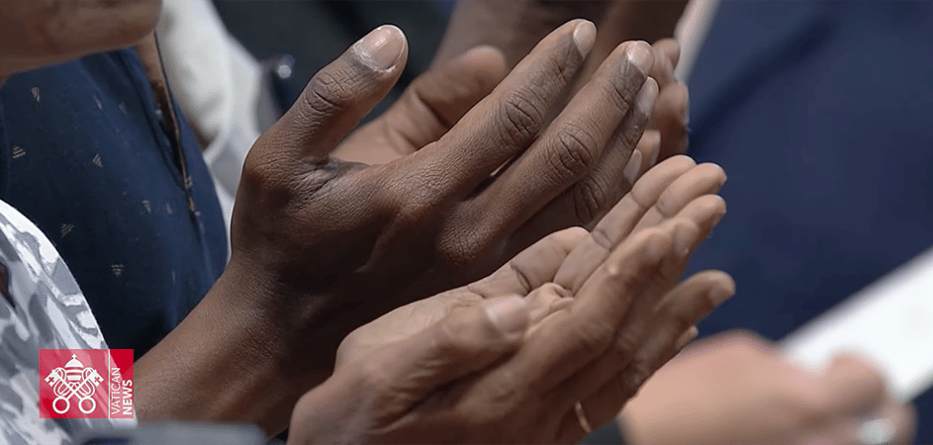As Christian believers, we are called to a life of prayer. Such an internal beckoning is a summons to a vital and personal relationship with the living and true God. The Church offers to guide us in our desire to enter into this relationship with God. As such, she opens and offers to all the vast riches of her spiritual treasury.
But relationships aren’t easy. Prayer isn’t easy. It involves our whole being. Prayer is a response to the initiative of God and relies on our faith. It is our faith, grounded on the thirst God has for us, that leads us to pray and to seek fellowship with him. As a consequence, we have to understand what prayer truly is and further clarify what we’re ultimately doing when we pray.
Prayer, therefore, is a battle, and it can be fierce. As the Catechism of the Catholic Church teaches: “In the battle of prayer, we must face in ourselves and around us erroneous notions of prayer. Some people view prayer as a simple psychological activity, others as an effort of concentration to reach mental void. Still others reduce prayer to ritual words and postures.”
As a result of such misguided notions of prayer, the Catechism tells us: “Many Christians unconsciously regard prayer as an occupation that is incompatible with all the other things they have to do: they ‘don’t have the time.’ Those who seek God by prayer are quickly discouraged because they do not know that prayer comes also from the Holy Spirit and not from themselves alone.”
In this passage, the Church is stressing the basic truth that prayer is a gift from God. If anyone approaches prayer as solely their own activity, they are doomed to either a dismissal of prayer or to a pseudo prayer in which God is absent.
Prayer is about God. It is about relationship. Prayer is a “mysterious encounter” with the all-powerful, ever-living, ancient of days, wonder counselor, mighty warrior, personal God, who is the alpha and omega, the beginning and end of all things. Prayer is the profoundly intimate meeting with God, who is infinitely perfect and blessed in himself.
We can only pray because of God’s benevolence and love for us. We can only truly understand prayer, therefore, if we fan our faith into flame and allow it to teach us and draw us into the arms of the God who loves us.
Once the authentic power and reality of prayer is realized, the false expectations and the juvenile demands for things begin to wane. In their place, a deep longing for God’s presence emerges and grows within us.
The desire to be with God is met by the Church’s rich spiritual tradition.
In the Church’s spiritual treasury, there are various prayer methods. Such a term should not confuse anyone. Prayer methods is the term for simple methods, or ways and forms of praying. No one should get stuck on the term. The prayer methods are active ways to help believers enter into a life of prayer.
We have prayer methods because we need to learn how to be in God’s presence. We have to be taught how to pray. The Catechism says it bluntly: “Prayer cannot be reduced to the spontaneous outpouring of interior impulse: in order to pray, one must have the will to pray. Nor is it enough to know what the Scriptures reveal about prayer: one must also learn how to pray.”
The prayer methods, therefore, instruct our interior lives. They structure our prayer and help us to engage in conversation with the living God, to talk with him and listen to him.
There are as many prayer methods, and variations of prayer methods, as there are personalities, temperaments, and situations in life. The prayer methods have been formed over centuries upon centuries of God’s people seeking and laboring to be with him, to avoid false views and promises of prayer, and to rejoice in holy fellowship with him.
The Catechism help us to understand this diversity of prayer methods when it explains: “The Lord leads all persons by paths and in ways pleasing to him, and each believer responds according to his heart’s resolve and the personal expressions of his prayer.”
Humility is the key to a strong interior life. As such, we need to be docile and seek to be taught the ways of prayer. We need to explore the various prayer methods of the Church and so actively encounter and converse with the God who loves us and calls us into a relationship with him.














